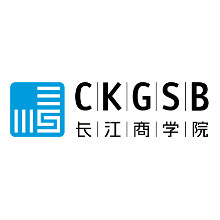[Photograph of Zeynep Ton by Evgenia Eliseeva. Source zeynepton.com]
By: Bennett Voyles
A Q&A with Zeynep Ton, author of The Good Jobs Strategy, on how four retailers make more money by paying above-average wages.
Western politicians have been promising and not delivering good jobs at good wages for generations now, but one associate adjunct professor at the Sloan School of Management at the Massachusetts Institute of Technology thinks she has discovered how it can be done.
Her solution to this perennial challenge is making Zeynep Ton, 41, a very popular academic in Washington these days. Reached the day after a meeting at the White House and the same week in which US presidential candidate Hillary Clinton made a reference to her work in a key economic speech, Ton discussed the 10 years of research that went into her 2014 book, The Good Jobs Strategy.
In her book, Ton explains how four very different retailers—Mercadonna, Spain’s largest supermarket chain, Trader Joe’s, the US grocery store chain, Costco, the US’s second-largest grocery store chain, and QuikTrip, a US convenience store chain—have made above-average wages part of their competitive advantage, and the key operational decisions that make their plumper paychecks possible.
Excerpts from an interview:
Q. You’re an operations professor. How did you get interested in wages?
A. I started my career looking at retail supply chains. Early on, I, along with the other researchers I was working with, found a pretty big surprise working on a study of retailers run by Harvard Business School and Wharton: even those retailers that were really good at managing their supply chain were doing a poor job inside their stores with regard to inventory management.
These problems were big and persistent across different retailers and they had a huge impact on sales and profits. That was a big puzzle for us: why did these problems happen so much, and pretty much everywhere? We looked at the reason for the variation in performance and why some stores were doing a better job than other stores. We found that stores that had more employee turnover, stores that had less training, stores that were understaffed, all had more problems.
I put these different pieces together and realized that retailers were actually caught in a vicious cycle, which starts with the mentality that people are just a cost, and leads to pressure to minimize that cost. Under-investment in people leads to inventory problems, customer service problems, and eventually to lower sales and lower profits. When the sales are lower, payroll budgets are lower, and companies invest in their people even less. And the cycle continues.
I kept seeing this vicious cycle at play in different contexts, and thinking that this can't be the only way to operate, because it’s bad for the customers, bad for the investors, and downright brutal for employees.
I started looking for companies that operated differently and I found Mercadona, Spain's largest supermarket chain, and then QuikTrip, a convenience store chain out of Tulsa, Oklahoma. When I saw these two companies, I realized that although they were so different in so many ways, I mean the size of their stores are different, their customers are different, what they sell is different, how many products they have. Yet they both get to low prices, good jobs, and great performance in exactly the same way. That was the aha! moment for me. I identified the common practices between these two, and then when I looked at a few other successful retailers, including Costco and other companies like Costco and Trader Joe's, I found the same traits: a very good operations strategy that depends on highly motivated people.
Q. How much healthier were these companies that you studied?
A. Their customer satisfaction and employee satisfaction are much higher than their competitors. In addition, they thrive financially. For example, the three most important assets in retail are: labor, space and inventory. When you look at productivity of these assets: their labor productivity or sales productivity—sales per square foot—or inventory turnover, they are each well above the average.
Q. If your Good Jobs model works so well, why has the low-wage model been so popular?
A. I think it’s the path of least resistance. The good jobs strategy requires a long-term mindset, which many companies lack. It also requires a systems perspective. Most companies operate in silos. In addition, most business executives probably find it easier to have a business model where they don't have to depend on tens of thousands or hundreds of thousands of workers. It's easier to focus on cost than on generating more value, and I think in general, mediocrity is much easier to achieve than excellence.
It’s also easier to scale a model that doesn't depend as much on people, because when people are so important to your model, you have to be very careful about growth, you have to be careful about who you hire, and that requires a lot more thought. Now some of these companies I've studied are huge—I mean, Costco is the second-largest retailer in the United States—so that's not to say that this model can't scale. But you do have to be very careful managing how fast you grow.
Q. In your book, you say companies that pursue this strategy need to make some choices.
A. The strategy is not just pay people more. It’s about making four operational choices. First, offer less. If you have a factory that focuses on a more limited number of products for a limited set of customers, it will perform much better than competitors that do not focus.
Second, standardize your work and empower people. On Henry Ford’s assembly line, things were standardized and people didn't have to use their heads and do narrow tasks over and over. But that type of standardization doesn't produce great outcomes for either the quality or even productivity or worker satisfaction. That’s where empowerment comes in. Toyota took the Ford model and on top of standardization, added empowerment. They empowered their people on the assembly line to identify problems, to solve problems, to improve process, and that combination of standardization and empowerment works great because it's very efficient.
The third choice I talk about is cross training, an important form of flexibility when you have variable demand. When people can do different jobs, you build more slack into the system.
The fourth choice is to operate with slack: staff stores with more employees than the expected workload.
These four choices really depend on great people, and that's exactly why these companies invest in their workforce. You can't use empowerment if you haven't invested in workers, because it only works when people make good decisions. You can't use people to do multiple tasks if they don't know how to do either one of the tasks appropriately. You can't operate with slack if you're not sure if people have extra time, they're going to use it productively.
Q. Does investing in your employees bring any other advantages?
A. This ability to execute allows you to do things that your competitors can't. For instance, QuikTrip realized several years ago that people want to be able to buy fresh food really fast. So they moved into fresh food, and prepared some of the food inside their stores. Any other convenience store would have found it very difficult to prepare fresh food in their stores because they have very high employee turnover and weak operations.
Q. Can this strategy work in a unionized shop?
A. Of the four companies I study, only Costco has some unionization, but less than 10% of their employees are unionized. So yes, it can coexist, but unfortunately in the United States, oftentimes you see unions in places where companies don't take care about their people. I think the model can coexist with unions, but the union side has to be very progressive. The good jobs strategy is a high-performance strategy. People who don't perform well can't survive working at a QuikTrip. If you don't have the work ethic, if you're not willing to work hard, you can't really survive in that setting.
Q. These organizations all seem to have a very clear sense of their identity.
A. They are very clear about what value they are giving to their customers, and stick to that. If you try to do everything for the customer, in the end, you provide very little value. If you don't choose, you don't have an identity. Trying to be all things to all people is a sure path to mediocrity.
Q. You’ve written about retail but are your conclusions only applicable to certain kinds of retailers?
A. The four operational practices behind this model are not at all unique to retail. I haven't studied enough industries to say that yes, it will work in every single industry, but I don't have a reason to believe it wouldn't work in some industries.
Q. What are you working on now?
A. I'm working on creating a Good Jobs score, and it's ready. I just created it for food retail in the United States, which rates companies on how well they're satisfying customers and employees and how productive they are. One of the most common questions I get from investors is: how can we spot a company that's following a good jobs strategy? Or customers who say, I want to shop at places that offer good jobs, how can I find those stores? So for that audience I created this good jobs score. This is version 1.0, I'm hoping to get feedback, improve it, and then scale it to other industries.
[This article has been reproduced with permission from CKGSB Knowledge, the online research journal of the Cheung Kong Graduate School of Business (CKGSB), China's leading independent business school. For more articles on China business strategy, please visit CKGSB Knowledge.]

